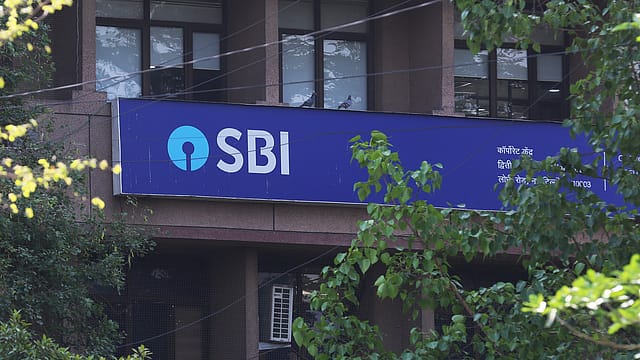SBI moves SC; seeks clarification on fraud accounts
ADVERTISEMENT

State Bank of India, the country’s largest lender has filed an application in the Supreme Court seeking clarification on the apex court’s March 27 order which said that banks need to hear borrowers before classifying them as defaulters. In its plea, filed on April 13, the country's largest lender said that default by borrowers has contributed to the weakening of the financial positions of the banks which affects the economy of the country.
The State Bank of India, in its fresh plea, suggested that only relevant information from the forensic audit report should be shared by banks with lenders. It said that sharing the complete report with the borrower can hamper the investigation and would forewarn the borrowers (who are at fault) by way of disclosure of confidential and critical information. The bank further added that since the report is based on the information shared by the borrower with the bank, sharing the complete forensic audit report would give an opportunity to them to delay the investigation, destroy the evidence and abscond the country. According to the State Bank of India, sharing the entire audit report might lead to borrowers raising the question of "personal hearing" and may try to delay the process of the adjudication. Moreover, the plea filed by the country’s largest lender urged the apex court that judgement should be made prospective in operation.
On March 27 this year, the apex bank held that borrowers must be given an opportunity to be heard before their accounts are classified as "fraud" by banks. The bench noted that classifying accounts as fraud results in serious criminal and civil consequences for borrowers and amounts to "blacklisting". The Supreme Court bench comprising Chief Justice of India DY Chandrachud and Justice Hima Kohli upheld the judgment passed by the Telangana High Court on December 10, 2020. The high court had held that an opportunity for a hearing must be given to the borrower before the account is classified as "fraud".
January 2026
Netflix, which has been in India for a decade, has successfully struck a balance between high-class premium content and pricing that attracts a range of customers. Find out how the U.S. streaming giant evolved in India, plus an exclusive interview with CEO Ted Sarandos. Also read about the Best Investments for 2026, and how rising growth and easing inflation will come in handy for finance minister Nirmala Sitharaman as she prepares Budget 2026.
The apex court had then said that the borrowers must be served notice, given an opportunity to explain the conclusions in the forensic audit report and be allowed to represent the banks and joint lenders forum before their accounts are classified as fraud.
In 2016, the Reserve Bank of India (RBI) released its master circular, which allowed banks to unilaterally classify accounts of wilful defaulters as fraudulent.
In its Financial Stability Report released in December 2022, the RBI said that the quantum of financial frauds in the Indian banking system fell 46% year-on-year to ₹19,485 crore between April and September 2022. Banks had reported frauds worth ₹36,316 crore during the same period last year.
